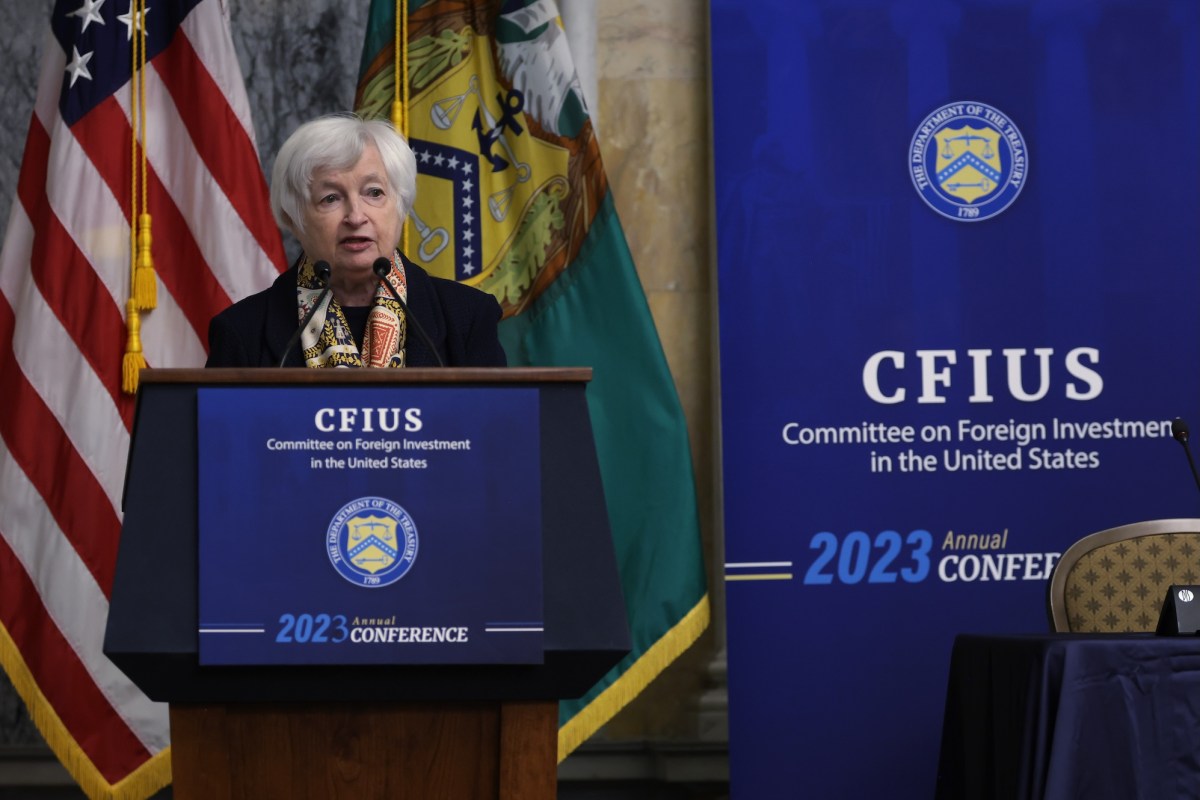Chinese hackers have reportedly breached a key office within the U.S. Treasury tasked with reviewing foreign investments and transactions that could threaten U.S. national security.
CNN reports, citing U.S. officials familiar with the incident, that the Chinese hackers targeted the Committee on Foreign Investment in the United States, or CFIUS, which can approve or deny deals that present national security risks, such as corporate mergers and takeovers or deals that involve sensitive U.S. information.
Treasury officials confirmed to TechCrunch last week that it was investigating a “major cybersecurity incident” following a breach at one of its security vendors, BeyondTrust. The Treasury said the hackers broke in using a stolen BeyondTrust key to remotely access employee workstations and documents on the department’s unclassified network. It was later revealed that the Chinese hackers had also breached the department’s office for international financial sanctions, the Office of Foreign Assets Control, or OFAC.
U.S. cybersecurity agency CISA said this week that there was no indication that the hackers had broken into any other U.S. government department as part of the campaign.
Bloomberg reports that the hackers targeting the Treasury are known as Silk Typhoon (previously called “Hafnium”), an active China-backed hacking group known to carry out mass hacking operations aimed at stealing information.
The cyberattack at the Treasury is the latest in a string of incidents identified in recent months and linked to the China-backed family of “Typhoon” hackers. These cyberattacks have included the targeting of private communications of U.S. government officials and prepositioning destructive malware in U.S. critical infrastructure to strike in the event of a future conflict between China and the United States.
The Chinese government has repeatedly denied the accusations.





Write more, thats all I have to say. Literally, it seems as though
you relied on the video to make your point. You definitely know what
youre talking about, why throw away your intelligence on just posting videos to
your blog when you could be giving us something enlightening to read?
Hey! Do you use Twitter? I’d like to follow you if that would be okay.
I’m absolutely enjoying your blog and look forward to new posts.
I am truly thankful to the holder of this web site who has shared this
impressive piece of writing at here.
Very nice post. I just stumbled upon your weblog and wanted to say that I’ve really enjoyed
surfing around your blog posts. After all I will be subscribing to your rss
feed and I hope you write again very soon!
I was suggested this web site by my cousin. I am not sure whether this post is written by him as
nobody else know such detailed about my problem.
You are amazing! Thanks!
Do you have a spam problem on this blog; I also am a blogger, and I was wondering your
situation; many of us havbe created some nice practices annd we are looking to trade strategies with others, be sure to shoot me an emaijl if interested.
Loook into my blog: Seo-pro100.Ru
Great blog here! Also your website loads up
very fast! What host are you using? Can I get your affiliate link to your
host? I wish my web site loaded up as quickly as yours lol